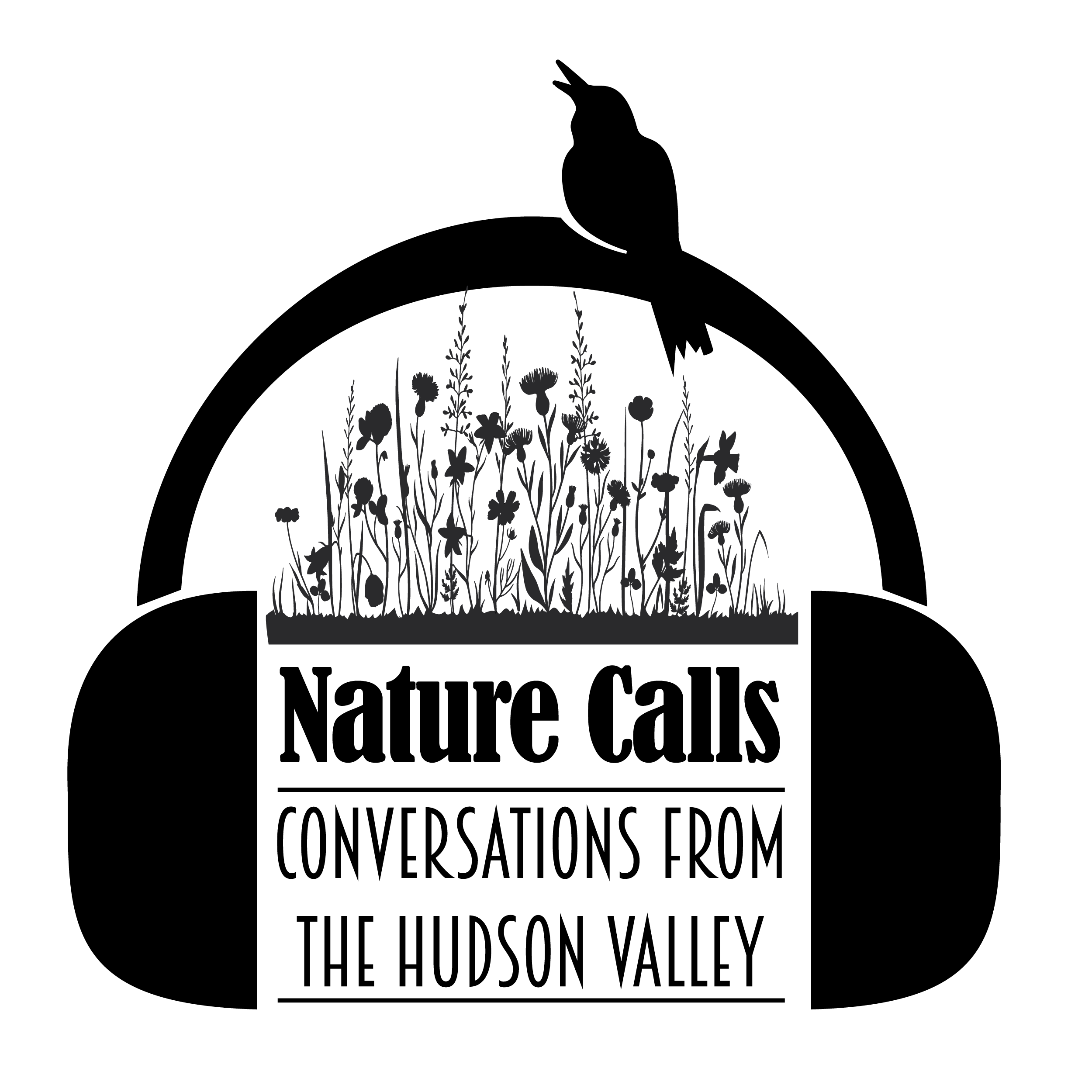Episodes
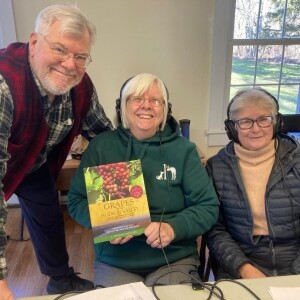
Thursday Sep 19, 2024
Episode 139: Wines of the Hudson Valley
Thursday Sep 19, 2024
Thursday Sep 19, 2024
Wine is an alcoholic drink made from fermented fruit. Yeast consumes the sugar in the fruit and converts it to ethanol and carbon dioxide, releasing heat in the process. Wine is most often made from grapes, and the term "wine" generally refers to grape wine when used without any qualification. But note that, wine can be made from a variety of fruit crops, including plum, cherry, pomegranate, blueberry, currant, and elderberry. Different varieties of grapes and strains of yeasts are major factors in different styles of wine. These differences result from the complex interactions between the biochemical development of the grape, the reactions involved in fermentation, the grape's growing environment, and the wine production process.
Like most of New York, the Hudson Valley is home to many grape varieties, including Cabernet Franc, Gamay, Syrah, and Albariño. Hybrid varieties like Noiret, Chelois, Seyval, and Baco Noir are also popularly grown throughout the area. The unique climate and soil are particularly beneficial for Native American, French American, and European grape varieties.
J. Stephen Casscles rejoins the Nature Calls: Conversations from the Hudson Valley podcast as he talks about Wines of the Hudson Valley. He is a grape grower, winemaker and author, from Athens, NY, (Greene County) after an illustrious career as an attorney. In addition, he lectures on wine, grape cultivation, 19th century American horticulture and landscape architecture at botanical gardens and historical societies throughout New York and New England.
In today’s episode, Steve talks about his book Grapes of the Hudson Valley which includes a description of some of the basics of wine production. This can be challenging as the grape variety and the current year’s weather (both winter and summer) can influence the sustainability and sweetness of the grapes. He touches upon the wide range of dessert wines on the market and where they are made. He also focuses on the people beyond the hybridizers. Due to the wide variety of grapes grown in New York, wine producers can produce a wide variety of hybrid wines.
Listen to this episode and learn about the science and ‘art’ behind wine production.
Hosts: Jean Thomas and Robin Smith
Guest: Steve Casscles
Photo by: Teresa Golden
Production Support: Linda Aydlett, Deven Connelly, Teresa Golden, Xandra Powers, Annie Scibienski, Robin Smith
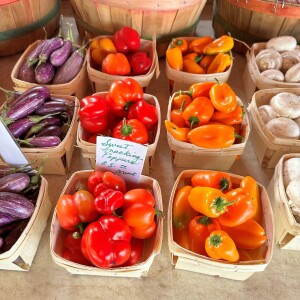
Thursday Sep 12, 2024
Episode 138: Patch to Plate Retrospective (Part 3)
Thursday Sep 12, 2024
Thursday Sep 12, 2024
Annie Scibienski is back with another Patch to Plate Retrospective episode. Once again, she talks about a variety of ways to prepare ingredients from your home garden or your local farmer’s market in your own kitchen. Today’s previously aired short segments feature corn, melons, peppers, tomatoes and a range of brassica vegetables.
Corn on the cob, fresh-picked from the garden, farm stand or farmer’s market, is a delightful summertime treat. Many Americans think of it as an American barbecue staple, but corn is actually a global food. Annie, she talks about corn and everything that goes well with it. The long list of options will make your taste buds clamor for it. Fire roasted corn salad anyone?
Melons are the topic of discussion on the second segment. This category includes watermelons, honeydews, and cantaloupes. A great resource, Vegetable Varieties of New York State, published by Cornell University, provides a list of vegetables and fruits (including melons) that are rated highly to grow well in New York State. Get your taste buds watering with descriptions of recipes for watermelon salad, watermelon pickles, and grilled cantaloupe.
The next segment features Peppers and Tomatoes. Annie shares her cooking and gardening expertise with these flavorful Hudson Valley Garden favorites. Discover the joys of growing and enjoying both tomatoes and peppers and how these garden favorites can be the stars of your menu planning. She discusses their unique qualities and offers valuable insights into incorporating them into your meals. If you're looking for inspiration or are looking for a simple, under-30-minute dinner ideas, Annie has you covered with delicious recipes you won't want to miss.
This episode ends with a segment about brassicas. Annie talks about a variety of ways to cook cabbage, cauliflower and broccoli. Awaken your taste buds with her descriptions of recipes involving these popular vegetable varieties.
Host: Jean Thomas
Guest: Annie Scibienski
Photo by: Teresa Golden
Production Support: Linda Aydlett, Deven Connelly, Teresa Golden, Xandra Powers, Annie Scibienski
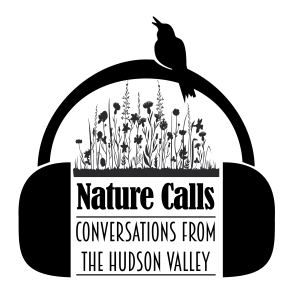
Thursday Sep 05, 2024
Episode 137: Patch to Plate Retrospective (Part 2)
Thursday Sep 05, 2024
Thursday Sep 05, 2024
In Part 2 of our Patch to Plate Retrospective series, Annie Scibienski is back with four previously aired short segments all about using ingredients from your home garden in your home kitchen. This time, however, they are all in one place.
Up first, Annie Scibienski shares her wealth of knowledge on all things asparagus. From growing to cooking and preserving, she provides some great tips to help you make the most out of this delicious perennial vegetable. She suggests different cooking methods, including blanching, grilling, and stir-frying, and shares some mouth-watering recipes like Pan Roasted Asparagus and Asparagus Quiche without crust. So, if you're a fan of asparagus or want to learn more about this nutritious and flavorful vegetable, don't miss this segment!
Next hear all about a wide variety of tender greens that can be grown in spring gardens in the Hudson Valley. You probably know all about lettuce, but arugula and spinach are also great spring greens that are fun to grow, cook and eat! Listen and gain some new tips and techniques.
The focus of the third segments is on hardy greens like kale, Swiss chard, and broccoli rabe. Get out the olive oil and garlic to enjoy these veggies. Do you know how to massage kale for a delicious salad? Interested in learning about what ingredients go well with Swiss chard or broccoli rabe? If so, this segment is for you.
Finally, learn about a wide range of ways to prepare zucchini and summer squash, some simply using your pantry staples, while others are more creative. If you’d like to know how to cook squash blossoms, make frittatas, or serve it with eggs or rice, this segment is for you. Your mouth will be watering!
Host: Jean Thomas
Guest: Annie Scibienski
Photo by: Teresa Golden
Production Support: Linda Aydlett, Deven Connelly, Teresa Golden, Xandra Powers, Annie Scibienski
Resources

Thursday Aug 29, 2024
Episode 136: Patch to Plate Retrospective (Part 1)
Thursday Aug 29, 2024
Thursday Aug 29, 2024
It’s harvest time and also time for some more retrospective episodes. These are a series of previously aired short segments on a common subject that have been packaged together for easier listening. In this case, it’s all about Patch to Plate, which provides lots of ideas on how to prepare all the fresh produce from your garden and/or local farmer’s market and make delicious meals in your home kitchen. Annie Scibienski, discusses how to prepare multiple seasonal vegetables to awaken your taste buds.
The first segment features root vegetables such as radishes, beets, carrots, etc. Carrots love butter, sugar, lemon, maple sugar, etc. Maple- glazed carrots anyone? Similarly, have you ever heard of a hidden beet pound cake that uses pureed beets to add nutrition to a basic cake recipe? Annie provides lots of tips on how to do this and what to check for to ensure that the batter is just right.
The next segment focuses on winter squash (e.g. butternut, acorn, honeynut, etc.), and cabbage. These squashes are delicious served roasted, or in soups. Sage, onion, garlic, and salt, butter, nutmeg, lemon, lime, can complement and enhance the squash flavor. Cabbage wedges can be roasted. There are easy ways to prepare cabbage which can then be served with walnuts and/or toasted seeds.
The third segment features winter vegetables like sweet potatoes, onions and dried beans. Annie describes a recipe that combines all three of these ingredients that goes great with pasta. Garlic, onion, chili peppers, and dairy (cheese, butter, etc.) complement these main ingredients. But they can also be used to create delicious scones. One of the keys to success is to ensure that each scone is of a consistent size so that they bake at the same rate.
The fourth segment in this episode focuses on potatoes. Annie talks about the nutritional benefits of potatoes, as well as the need to focus on serving size. There are lots of different types of potato, including starchy potatoes for baking, or others for general purpose uses. She provides lots of great tips on how to successfully bake potatoes so that they have a crispy skin and a nice, fluffy interior. Tips including not wrapping them in foil or microwaving them to avoid steaming them. Listen to her suggestions on ingredients to combine potatoes with and let your imagination savor the flavors.
Host: Jean Thomas
Guest: Annie Scibienski
Photo by: Teresa Golden
Production Support: Linda Aydlett, Deven Connelly, Teresa Golden, Xandra Powers, Annie Scibienski

Thursday Aug 22, 2024
Episode 135: Nutrition
Thursday Aug 22, 2024
Thursday Aug 22, 2024
At the most basic level, nutrition is about eating a regular, balanced diet. Good nutrition helps fuel your body. The foods you eat supply the nutrients your body needs to maintain your brain, muscle, bone, nerves, skin, blood circulation, and immune system. Proper nutrition also helps protect you from illness and disease, such as heart disease, diabetes, cancer, and osteoporosis.
For optimal health, science supports following a plant-based diet like the Mediterranean-DASH (Dietary Approaches to Stop Hypertension) diet or MIND (Mediterranean-DASH Diet Intervention for Neurodegenerative Delay) diet. Plant-based diets have been shown to have various health benefits and are linked with a lower risk of heart disease, cancer, and other chronic illnesses. As a general rule, these diets tend to recommend:
- Eating plenty of vegetables, fruits, and whole grains
- Choosing fat-free or low fat dairy products, fish, poultry, beans, nuts and vegetable oils
- Limiting saturated and trans fat intake, such as fatty meats and full-fat dairy products
- Limiting drinks and foods that contain added sugars
- Restricting sodium intake while increasing consumption of potassium, magnesium and calcium
Following a healthy diet has many benefits, including building strong bones, protecting your heart, preventing disease, and boosting your mood. A healthy diet typically includes nutrient-dense goods from all of the major food groups including lean proteins, whole grains, healthy fats, and fruits and vegetables of many colors. Healthy eating habits also include replacing foods that contain trans fats, added salt, and sugar with more nutritious options.
Rebecca Polmateer, Program Director, Cornell Cooperative Extension of Columbia and Greene Counties, rejoins the Nature Calls: Conversations from the Hudson Valley podcast to talk about good nutrition and the programs and resources that are available to help residents eat healthy. Listen as she describes how to find the most nutritious foods starting with fresh local produce, frozen vegetables, fresh produce from more distant locations, followed by canned foods. Whole foods are always better than packaged/processed ones. ‘Superfoods’ (e.g. blueberries, quinoa, etc.) tend to be packed with more vitamins. Lean meats are also preferable. She also talks about the importance of food labels on packaged foods.
There are multiple governmental programs that can help ensure your family gets good nutrition. The Supplemental Nutrition Assistance Program (SNAP) issues electronic benefits that can be used like cash to purchase food. SNAP helps low-income working people, senior citizens, the disabled and others feed their families. New York State also offers a special supplemental nutrition program for Women, Infants and Children (WIC) which offers nutrition education, breastfeeding support referrals, nutritious foods.
We’re wishing you more thoughtful and healthy diets in the future!
Hosts: Tim Kennelty and Jean Thomas
Guest: Rebecca Polmateer
Photo by: MyPlate Graphics | MyPlate
Production Support: Linda Aydlett, Deven Connelly, Teresa Golden, Xandra Powers, Annie Scibienski
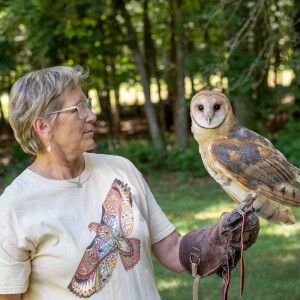
Thursday Aug 15, 2024
Episode 134: Ravensbeard Wildlife Center
Thursday Aug 15, 2024
Thursday Aug 15, 2024
Ravensbeard Wildlife Center is located in Saugerties, New York. The center is a non-profit (501(c)3) organization that provides wildlife rehabilitation for injured, ill and orphaned animals in order to return them to the wild. For over two decades, Ravensbeard has been supporting the wildlife from the surrounding communities of Woodstock, Saugerties and Kingston. In caring for animals, they promote community awareness, education, appreciation, compassion and acceptance of the circle of life. They also offer volunteer opportunities to work with many different species in order to experience their true nature.
Ellen J. Kalish is the Founder and Executive Director of Ravensbeard Wildlife Center, a wildlife rehabilitation and educational center that focuses on rescue and release for wild birds and other wildlife. In 2017, Ellen was given the William R. Ginsberg Stewardship Award from the Woodstock Land Conservancy, for her service of rehabilitating and releasing wild birds back into nature, and for her educational programs with wild, non-releasable birds of prey. She’s also served as a board member for the New York State Wildlife Rehabilitation Council (NYSWRC). Through NYSWRC licensed wildlife rehabbers work to inform, educate, support in field work and promote conservation.
At Ravensbeard, Ellen currently cares for some unreleasable birds that she utilizes to educate the community about the environment, the interconnectedness of all life, and the reliance on each other for long-term survival. The birds used for educational programs cannot be released due to injuries that would be fatal if left in the wild. So, they have become ambassadors in wildlife education.
In this episode of Nature Calls: Conversations from the Hudson Valley, learn more about the wildlife rehabilitation center as well as Rocky the Owl, a Saw-whet owl, one of the smallest owls in the northeast, who was rescued from the Christmas Tree at Rockefeller Center. Back at Ravensbeard Wildlife Center, Rocky was given fluids and all the mice she would eat, was checked by a vet, and ultimately was released back to nature.
Hosts: Jean Thomas and Teresa Golden
Guest: Ellen Kalish
Photo by: Ellen Kalish
Production Support: Linda Aydlett, Deven Connelly, Teresa Golden, Xandra Powers, Annie Scibienski, Robin Smith
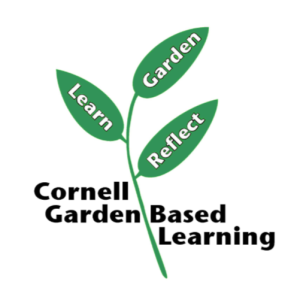
Thursday Aug 08, 2024
Episdoe 133: Ecological Gardening
Thursday Aug 08, 2024
Thursday Aug 08, 2024
An ecological garden is a thoughtfully designed space that is harmoniously integrated with the surrounding environment. Ecological gardening is a sustainable approach focused on understanding and enhancing the interactions between plants, insects, soil, water, and other garden elements. Achieving a successful ecological garden requires a mindset shift to actually work with nature to foster a vibrant plant ecology and rich biodiversity.
A key element of ecological gardening is ensuring the soil is nutrient-rich, alive, and chemical-free. The use of organic (versus chemical) fertilizers will release nutrients slowly, ensuring that the plants have a steady food supply while nurturing the soil's health. Understanding the unique light, moisture, and temperature conditions within your garden is also important in plant selection.
Choosing native plants supports local wildlife, requires less water and also minimizes the need for pesticides. Native perennials are the steadfast friends of the garden. Once they've settled in, they return yearly, offering both beauty and function. Investing in these perennials lays the groundwork for a sustainable, vibrant garden for years to come. Companion plants and herbs also play an important role in the health of a garden. They both help to repel harmful pests and, at the same time, lure beneficial insects that can aid in pollination, and help to create an ‘immune system’ with integrative pest management principles.
Committing to an ecological garden approach is also a commitment to aligning our green spaces with nature's rhythms, fostering a sustainable balance between plants, insects, and other organisms.
Learn from Jennie Cramer how you can the transform your home landscape into a habitat for insects, birds, and other wildlife. Jennie is an educator with Cornell Garden-Based Learning. She is an ecologist turned enthusiastic horticulture educator with a quarter of a century’s experience in organic gardening, regenerative agriculture, natural history and botanical education. She is especially fond of teaching students how to create a resilient, abundant, and beautiful garden ecosystem by applying ecological principles. She joins Nature Calls: Conversations from the Hudson Valley to help all of us turn our landscapes into ecological gardens.
Hosts: Tim Kennelty and Jean Thomas
Guest: Jennie Cramer
Photo by: Cornell Garden Based Learning
Production Support: Linda Aydlett, Deven Connelly, Teresa Golden, Xandra Powers, Annie Scibienski
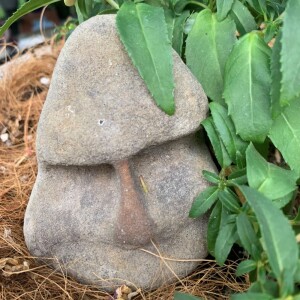
Thursday Aug 01, 2024
Episode 132: The Art of Rocks
Thursday Aug 01, 2024
Thursday Aug 01, 2024
Rocks are any naturally occurring solid mass or aggregate of minerals. There are three major types of rock:
- igneous which are formed through the cooling of lava
- sedimentary which are formed by the accumulation or deposition or mineral or organic particles
- metamorphic which result from the transformation of existing rock to new types of rock as a result of extreme temperatures or pressure
Studying rocks provides us with a primary record of much of the geological history of the Earth. Geology describes the structure of the earth and the processes that have shaped that structure. By studying the earth’s structure, geologists determine the relative ages of rocks found at a given location. They use a wide variety of methods to understand this, including fieldwork, rock description, geophysical techniques, chemical analysis, and more.
The Hudson River School was a mid-19th-century American art movement embodied by a group of landscape painters who created a realistic, detailed, and sometimes idealized portrayal of nature, often juxtaposing peaceful agriculture and wilderness, which was fast disappearing from the Hudson Valley just as it was coming to be appreciated
The study of art along with geology can provide insights into the past culture, especially when you combine the Hudson River School paintings with our local geologists, Robert and Johanna Titus. By studying the paintings of Thomas Cole, Frederic Church and others, the Tituses help to provide additional insights into some popular tourist and cultural locations in the Catskills and the Hudson Valley.
Robert Titus, PhD, is a paleontologist by training, and a retired professor at Hartwick College in the Geology Department, who has don considerable professional research on the fossils of New York. Johanna Titus, MS, has a degree in molecular biology, also a retired professor from SUNY Dutchess. Together, they have authored multiple books (The Hudson Valley in the Ice Age; The Catskills in the Ice Age; The Catskills: A Geological Guide; and The Hudson River Schools of Art and Their Ice Age Origins). They are also regular columnists for The Mountain Eagle newspaper.
They joined the Nature Calls: Conversations from the Hudson Valley team in a delightful conversation about the Art of Rocks.
Hosts: Jean Thomas and Teresa Golden
Guests: Robert and Johanna Titus
Photo by: Jean Thomas
Production Support: Linda Aydlett, Deven Connelly, Teresa Golden, Xandra Powers, Annie Scibienski, Robin Smith
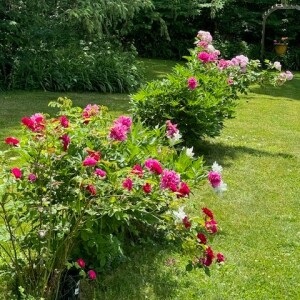
Thursday Jul 25, 2024
Episode 131: Roses
Thursday Jul 25, 2024
Thursday Jul 25, 2024
Dr. Abbey Cash is in her 20th year as a Master Gardener Volunteer and has a passion for growing Roses in Columbia County. Trained as an educator, having taught in elementary, and at the college level, Abbey is also an avid hand-fan collector as well as a grower of annuals, perennials and bulbs. She joins the podcast, Nature Calls: Conversations from the Hudson Valley, in a discussion about demystifying the challenges of growing roses in Zone 5 in New York State.
Understanding hardiness zones is key to the selection of a rose that will grow well in the Hudson Valley. Abbey takes us through the many things to look for when picking a good, healthy rose to purchase. There are many different types of roses to choose including hybrid teas, floribundas, climbing roses, miniature roses and tree roses. While not discussed in this episode, make sure to avoid the multiflora rose, an invasive species in our area (see more information in the resource section).
Once you bring a rosebush home, the fun is only beginning. There are many things to consider in selecting a site where the rose will thrive.6 hours of morning sun with one side protected is ideal. Creating a soil ‘formula’ (with cow manure, compost, peat and slightly acidic soil) is also a key to success. The planting process is also multi-faceted but will improve your odds have having a beautiful rose to grace your landscape for years to come.
Once the rose if planted, however, you are not ‘done’. Keeping your new roses healthy and free of insects and/or diseases may involve the use of fertilizers, sprays or powders that need to be applied periodically. Roses also require some TLC (tender, loving care) and grooming. Understanding the basics of pruning will help to keep your roses producing either individual stems, climbers, or a beautiful hedge throughout the season. But water only when really needed, keeping the water at the base of the plant, not on the leaves, to avoid the dreaded ‘black spot’.
There is also work to be done to prepare roses for the winter, cutting them back (except for climbers), burying the knob at the base of the plant with soil, and spreading the area with pine needles and pine branches and/or straw. These actions are reversed in the spring to prepare the plants for another growing season.
Listen to this episode of the podcast, Nature Calls: Conversations from the Hudson Valley, to improve your odds of successful rose growing!
Hosts: Jean Thomas and Teresa Golden
Guest: Abbey Cash
Photo by: Tim Kennelty
Production Support: Linda Aydlett, Deven Connelly, Teresa Golden, Xandra Powers, Annie Scibienski, Robin Smith
Resources
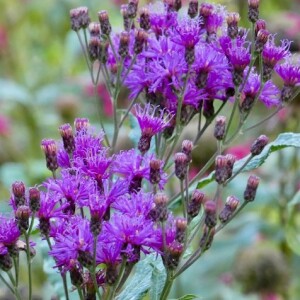
Thursday Jul 18, 2024
Episode 130: Good Plant/Bad Plant Retrospective (Part 3)
Thursday Jul 18, 2024
Thursday Jul 18, 2024
Tim Kennelty returns with Part 3 of his Good Plant/Bad Plant Retrospective. In this episode he continues with a wealth of information about native plants that are beneficial to the environment, as well as others that tend to be invasive or noxious. Today, Ironweed, Japanese Barberry, Asters, Tree of Heaven and Viburnums are featured.
Ironweed, is a great native, pollinator plant known for its purple flowers and impressive height that will add ‘presence’ to any garden. Ironweed prefers rich moist acidic soils but will grow in average moist to wet soils in full sun. Use in a rain garden, cottage garden, meadow, along streams or ponds or the back of the border.
By contrast, invasive Japanese Barberry is not such a good choice for a garden as it creates a great habitat for the white-footed mouse which is known to be a carrier for tick-borne diseases
Asters, once known as New World asters, are now classified under a different genera, particularly Symphyotrichum. These native plants offer vibrant colors in purple, pink and white while also supporting late-season pollinators, making them an excellent addition to your garden.
On the flip side, the invasive Tree of Heaven (Ailanthus altissima), is a non-native plant that has wreaked havoc in many ecosystems, including New York’s. As Tim describes, it’s critical to manage this troublesome plant, which also serves as the primary host for the destructive spotted lanternfly. Listen and learn how to identify, control, and support your local ecosystem.
Viburnums are a very admired and fast-growing flowering landscape shrubs or small trees with a large number of cultivars available. Bloom times span from early spring through June, followed by attractive fruit and great fall foliage. However, not all viburnums are created equal. Learn about the differences between the native and non-native species
Host: Jean Thomas
Guest: Tim Kennelty
Photo by: Tim Kennelty
Production Support: Linda Aydlett, Deven Connelly, Teresa Golden, Xandra Powers, Annie Scibienski

